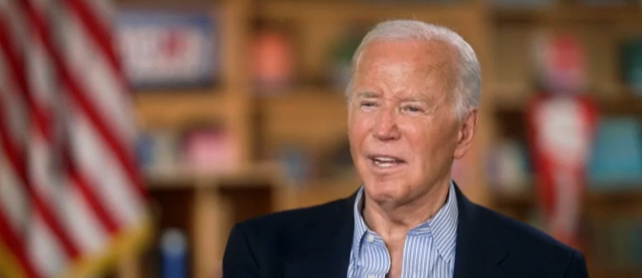
For the first time in almost fifty years, the Port of New York and New Jersey is largely idle thanks to a large-scale strike by the North Bergen based International Longshoremen’s Association. The walkout extends from the ports of Maine and Texas.
According to the International Longshoremen’s Association (ILA) “the United States Maritime Alliance (USMX) continues to block the path toward a settlement on a new Master Contract by refusing ILA’s demands for a fair and decent contract and seems intent on causing a strike at all ports from Maine to Texas.”
USMX is a trade group that represents management and the shippers including global multinationals giants like Hapag Lloyd and Maersk. USMX had asked President Biden to invoke the Taft-Hartley Act which would have forced the union back to work while negotiations continued. Just before the strike deadline, USMX filed an unfair labor practice charge requesting “injunctive relief—requiring the union to resume bargaining—so that a deal could be finalized,” reported Reuters.
USMX made a last ditch pitch that progress was being made before the strike deadline.
“In the last 24 hours, the USMX and ILA have traded counter offers related to wages. The USMX increased our offer and has also requested an extension of the current Master Contract, now that both sides have moved off their previous positions. We are hopeful that this could allow us to fully resume collective bargaining around the other outstanding issues—in an effort to reach an agreement.”
Hours after the strike it was clear President Biden was not invoking Taft-Hartley and was firmly in their union’s corner. The ILA pledged to not impede military cargo nor extend their work stoppage to the cruise industry.
“Now is not the time for ocean carriers to refuse to negotiate a fair wage for these essential workers while raking in record profits,” Biden said in a statement from the White House. “My administration will be monitoring any price gouging activity that benefits foreign ocean carriers, including those on the USMX board.”
“Over the last week and more, I have spent hours on the phone and in meetings with the parties urging them to find a way to reach a fair contract,” said Acting Secretary of Labor Julie. “This country’s port workers put their health and safety on the line to keep working through the pandemic so we could get the goods we needed as COVID raged and these workers will help communities recover from the devastating effects of Hurricane Helene. As these companies make billions and their CEOs bring in millions of dollars in compensation per year, they have refused to put an offer on the table that reflects workers’ sacrifice and contributions to their employer’s profits.”
Both Governor Kathy Hochul and Governor Phil Murphy urged labor and management to continue to work towards a settlement.
An embattled New York City Mayor Eric Adams used his weekly press conference to offer support to the strikers telling reporters he did not want President Biden to invoke Taft-Hartley.
“I’m going to stop over and see the striking workers,” Adams told reporters. “You know, I know what it is to be on a picket line and to fight for your rights as an employee. And I’m going to stop over and see them and show my support. I’m going to do it later on today.”
“The Ocean Carriers represented by USMX want to enjoy rich billion-dollar profits that they are making in 2024, while they offer ILA Longshore Workers an unacceptable wage package that we reject,” the ILA said in a statement. “It’s disgraceful that most of these foreign-owned shipping companies are engaged in a ‘Make and Take’ operation: They want to make their billion-dollar profits at United States ports, and off the backs of American ILA longshore workers, and take those earnings out of this country and into the pockets of foreign conglomerates.”
The union’s makes the case that their rank and file had been “crippled by inflation due to USMX’s unfair wage packages.”
The ILA accused the shippers “of gouging” their customers that resulted in increased costs to American consumers. “They are now charging $30,000 for a full container, a whopping increase from $6,000 per container just a few weeks ago. In just a short time, they went from 6K, to 18K, then 24K and now $30,000,” the union charged. “It’s unheard of and they are doubling their $30,000 fee stuffing the same container from multiple shippers. They are killing the customers.”
Back in December of 2022, with a looming railroad strike over sick time, President Biden opted to tip the scale to the railroads by signing legislation that forced that stressed workforce that had soldiered through the pandemic to take the deal the rank and file had rejected.
“It was tough for me but it was the right thing to do at the moment—save jobs, to protect millions of working families from harm and disruption and to keep the supply chains stable around the holidays,” Biden said at the time.
Scroll forward to last year’s UAW strike against the big three automakers and Biden backed the union.
“You’ve heard me say it many times, Wall Street didn’t build the country,” Biden told the strikers. “The middle class built the country, and unions built the middle class. And that’s a fact, so let’s keep going. You deserve what you’ve earned, and you’ve earned a hell of a lot more than you’re getting paid now.”
The UAW had a distinct public relations advantage in that the general public knew who the big car companies were. Millions of Americans have had a direct consumer experience with an automaker. Reserving transatlantic container service is done by a pretty small circle of folks although the deals they cut and the prices they settle on have a big impact on every consumer and business.
In addition to wages, the issue of increasing automation at the ports looms large. For decades now, the rail and maritime freight sectors have come under increasing pressure to automate and reduce crewing requirements, often putting workers and the public at greater risk.
In the aftermath of the East Palestine/ Norfolk Southern rail disaster, which resulted in the release of a vast quantity of vinyl chloride and other highly toxic chemicals elected officials from both parties blasted the Norfolk Southern railroad.
They were certainly a worthy target.
Norfolk Southern, as one of just seven Class One railroads, down from close to 50 in the 1980s, reportedly increased its payout to its shareholders by some 4,500 percent while it cut its railroad workforce by a third before the Ohio catastrophe. This was achieved by slashing costs, successfully resisting regulation, and deploying more costly technology as the rail carrier made their trains longer, heavier, and much more profitable.
Earlier this year, The Dali, built in 2014, a 1,000-foot floating behemoth that can hold 10,000 shipping containers operated by just a 22-member crew, crashed into Baltimore’s Francis Scott Key Bridge, causing the death of six immigrant construction workers. The catastrophic collapse screwed up port operations for months. The ship had been inspected last year in Chile when a broken pressure gauge was replaced. According to the U.S. Coast Guard, it passed an inspection in September. Reuters reported the ship was involved in an accident back in 2016 when it was trying to leave Antwerp and its hull was sufficiently damaged to “impair its seaworthiness.”
Roland “Rex” Rexha is the secretary-treasurer of the Marine Engineers’ Beneficial Association. Established in 1875, it’s the oldest maritime trade union in the U.S., representing licensed deck and engine officers. Rexha said the Dali disaster highlighted the downside of not having ships escorted by tug boats until they are out on the open sea away from critical infrastructure — as well as the risks created by building larger and larger vessels while using automation as justification for reducing crew size, and the wide variance between U.S. maritime safety standards and the rest of the world.”
That last dock strike in 1977 was a few years before President Ronald Reagan kneecapped the American labor movement for a generation when he summarily fired thousands of striking air traffic controllers. Back then, the striking workers who complained of the crushing stress of juggling 747s wanted a four day work week. They had the audacity to complain about an aging infrastructure.
The nerve.
Those complaints resonate with today’s air traffic controllers. As the New York Times reported late last year, when the Federal Aviation Administration announced the forming of a panel to look “into the potential risks posed by exhaustion among air traffic controllers” who work “round-the clock schedules that have pushed them to the physical and emotional brink.”
In the 1980s, 59 percent of Americans supported the way Reagan broke PATCO. In Reagan’s America, closer to twenty percent of Americans were in a union. Today just six percent of private sector workers are in a union while close to a third of public sector workers have representation, netting out to around ten percent of the entire U.S. workforce.
Post-pandemic, with the loss of many thousands of essential workers to COVID, the great resignation that followed, and a generation of ever greater wealth concentration and income disparity, and 70 percent of Americans are registering greater support for unions, a 70 year high.
At the same time we are seeing an uptick in strike activity and in 2023 the National Labor Relations Board received 2,510 applications from workers for union representation, a 53 percent spike in applications from the previous year.
The landscape has radically shifted from when Reagan, a former union president, burnished his tough guy image by firing PATCO.
In 2023, President Biden walked on the UAW picket line.
(Visited 159 times, 159 visits today)
President Joe Biden has thrown his support behind the striking members of the International Longshoremen’s Association (ILA) and issued a warning to shippers about potential price spikes in the wake of the ongoing labor dispute.
The ILA, which represents dockworkers at ports along the East and Gulf Coasts, has been engaged in a labor dispute with their employers over issues such as wages, benefits, and working conditions. The strike has caused disruptions at several major ports, leading to delays in the movement of goods and impacting supply chains across the country.
In a statement released by the White House, President Biden expressed his solidarity with the ILA strikers and urged both sides to come to a swift resolution to the dispute. He emphasized the importance of ensuring fair wages and safe working conditions for all workers, including those in the maritime industry.
At the same time, President Biden also cautioned shippers about the potential for price spikes as a result of the ongoing labor dispute. With delays in the movement of goods and disruptions to supply chains, there is a risk that prices for consumer goods could increase as a result of the strike.
The Biden administration has been closely monitoring the situation and working with both sides to find a resolution to the labor dispute. The President has made it clear that he will not tolerate any actions that harm American workers or consumers, and he is committed to ensuring that fair labor practices are upheld in all industries.
As negotiations continue between the ILA and their employers, it is important for shippers and consumers to be aware of the potential for price spikes and disruptions to supply chains. By staying informed and supporting fair labor practices, we can all work together to ensure a fair and equitable outcome for all parties involved in the ongoing labor dispute.


